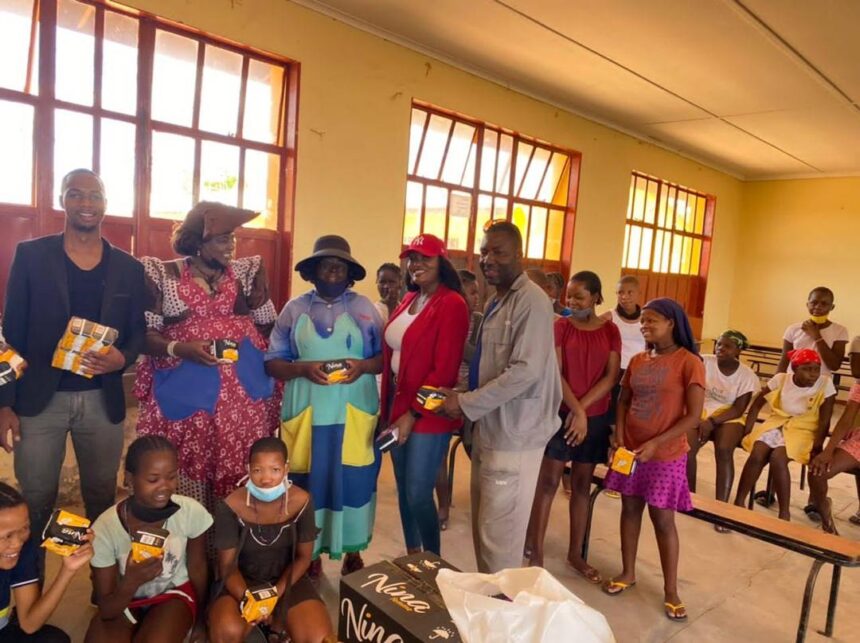No girl child should be denied, disadvantaged, or affected academically or any other way by the monthly period cycle because of not accessing dignity pads, said youth activist Turipamue Kazenango.
The youth activist said he is saddened by the unfortunate reality that same Namibian girls cannot afford dignity pads.
He said this led him to start the Period Poverty End Drive to collect sanitary pads to distribute to girls in need.
“It all started in 2021 when I began collecting sanitary pads from individuals, and where I could, use my funds to purchase the pads. I have been having conversations with schools, and the Life Skills teachers identify learners who need the pads,” said Kazenango.
The first-year public management student noted that it is crucial to target those from marginalised communities, and the involvement of schools is important in identifying future leaders in need.
“For this year, I projected to collect sanitary pads valued at N$20 000. But my current numbers indicated that the value of the pads I have right now stands at N$8 000 and it is not bad, I will soldier on. I was targeting two or three schools, but I will only be handing it over to one school,” he said.
Based on his investigation, The Namibia University of Science and Technology student said such initiatives are impactful if collectively orchestrated, as it is not one man’s job.
Kazenango told Youth Corner that the Period Poverty End Drive will be having a handover of the pads this month, 15 July 2024, to the Waterberg Junior Secondary School, his alma mater. The drive will see more than 300 girls receiving the pads from the initiative.
“If everything was easier for me, or if I had so many pads, I would have nationalised it. But as I am getting stock, I will select the most needy and vulnerable, mostly rural schools,” he stated.
Schools that have benefitted from the drive thus far include Gustav Kandjii Secondary School in Otjinene, Okondjatu Combined School, Okakarara Senior Secondary School, and schools in Otjimbingwe and Omatjete.
“My next plan is to introduce a debating society that will be dissecting various issues around menstruation and the role government plays in that, especially when it comes to girls losing out on schoolwork because of the lack of access to these necessities,” he indicated.
Kazenango said this became a personal project because he has seen the effects of not having access to sanitary pads on the girl child.
“In grade 9, I competed with a girl who was doing extremely well in her schoolwork, I remember her coming late to write exams. Luckily, a female teacher found her and noticed her monthly cycle had started and she didn’t have pads. She got assistance and managed to write the exams,” he recalled.
He indicated that in 2020, he thought of that ordeal again, and recalled how the lack of sanitary pads almost instantly altered her life.
This led him to think that perhaps other girls are faced with the same predicament as his former classmate.
“It kept on bothering me. I was wondering how many others are going through the same thing, and staying away from school because of menstruation. Having that monthly cycle is a natural thing, nothing wrong with that. So, that’s when I started that sanitary drive,” he stated.
Kazenango has teamed up with ETA Butchery and Store situated in Okakarara for this handover.
His biggest wish is to have more of such initiatives to empower and keep young girls in school.
On 17 March 2021, Namibia eliminated the 15% VAT on sanitary products also known as the ‘tampon tax’.
The announcement was done after it was tabled by information minister Emma Theofelus.
Since then, discussions have shifted to the distribution of free sanitary pads, as it is done with condoms in the country.
Advocators of such a notion have said having sex is a choice, while periods are free-flow. Thus, sanitary pads must be given for free.
-psiririka@nepc.com.na



